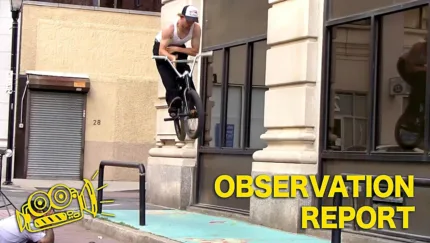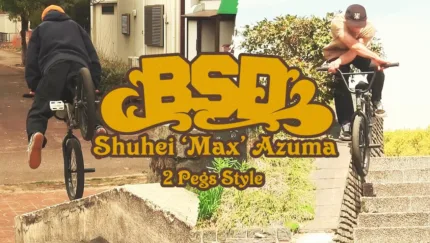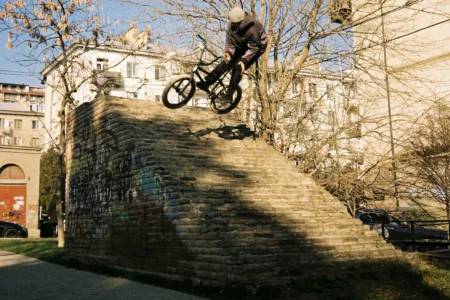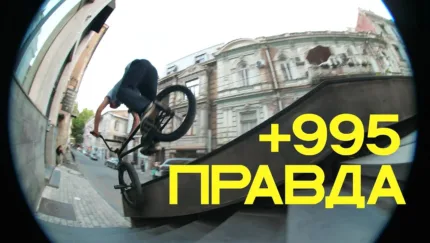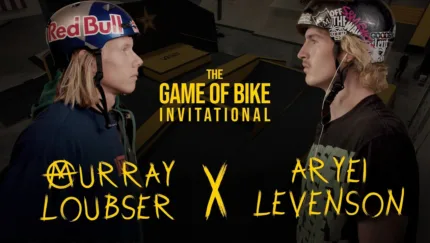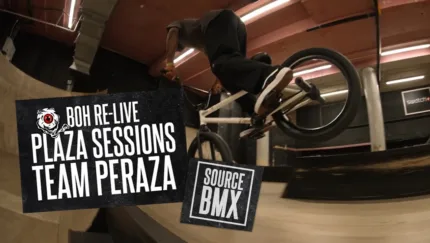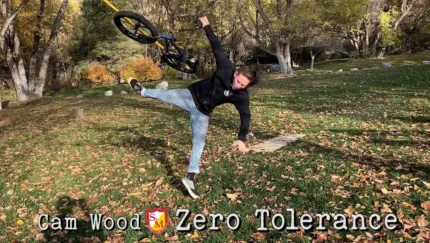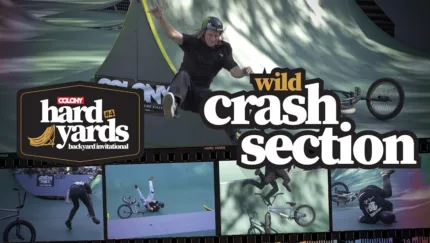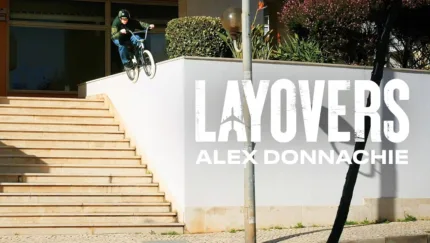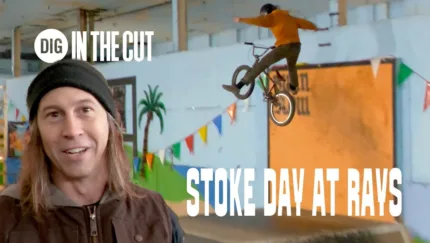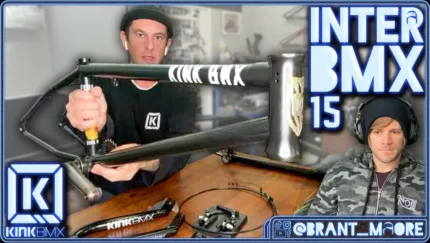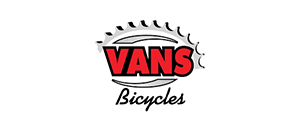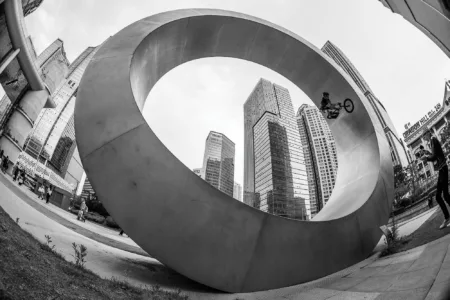
20 Years Of Simple Session - The Risto Kalmre Interview
"I don’t deny it gets a little difficult sometimes"
Interview first published in DIG Magazine Issue 99.9 | Images courtesy of Simple Session
With all the lights, the giant stadium and the high end production at a contest like Simple Session, it's easy to forget where it all started. Founder and organiser Risto Kalmre has been there and done most of it, but instead of standing in the spotlight he prefers to work away tirelessly in the background to make the whole gig come together year after year. Since the first incarnation back in 2000 it has since grown into one of the biggest and best BMX events in the world, but it's hasn't all been roses and rainbows. We quizzed Risto to find out more, and started by asking about his beginnings in BMX...
Simple Session 20 is in Tallin, Estonia February 8–9 2019 with a biggest ever prize budget of €50k.


How did you first get into BMX?
When I went to high school, I met up with two guys, Pent and Timo, who I became friends with. It was the late 90s, and they already had BMX bikes from the previous summer. I had been into bikes before, but not BMX, as it really didn’t exist at all in Estonia back then. I was snowboarding at that time though. Anyway, I was totally in awe of BMX then, as it connected the dots for me. We started riding together, shooting photos and videos, drawing graffiti and comics, making a zine and all that – all the creative stuff around it. We found out there were a few others who had started riding in Estonia around the same time. In the whole country there were less than 10 riders in the beginning.
The beginning was really slow. I think it’s hard for modern riders to grasp what it was like back then in Estonia. As we were the pioneers and among the first in the whole country to start riding, there was no one better than each other to learn from. So you really didn’t have any idea of what could even be done on a bike. Some people just used it to ride to a bar to get beer. And this was before modern internet, Youtube, or anything like that. We got our hands on a few VHS tapes that we lent each other and that was it. The level we saw from the early Schwinn and KHE videos was insane and seemed impossible to imitate. These days one can learn more in a few days, than we did in a year. Since there were no proper ramps, we rode quite a bit of flatland. After a while, we became friends with some Latvian riders. In Latvia there was a small racing tradition and there was a bit more going on, so that helped to progress things. There was this Latvian dude, Dino (Latvian action sports legend), who was also snowboarding, so I knew him from that scene. We became good friends and started riding together. He was a big inspiration to us. At some point earlier in the year, 1999 GT Air show somehow made it to Estonia, with Zach Shaw, Romaric Fath, Phil Dolan and Bart de Jong doing the tour. Seeing that in person and getting to know these dudes definitely was an inspiration too. Bart has been to every Simple Session since 2004. Martti Kuoppa was a big inspiration as well. We invited him over to Estonia to do a demo in my early years at some point, so seeing what was possible on a bike like that was crazy. We’ve had him over many times since.
The Estonian dawn of BMX was quite a strange time. Bikes were heavy and broke easily. There were no role models. Mistakes were made, and progress was hard and painful – quite literally. I fucked up two of my lower discs in my back quite early in the game, so I didn’t really get anywhere far with my level of riding. At some point the movement of bunnyhopping just became too difficult and painful. I think Taj Mihelich got the same problem after his fusion surgery. But having thought about it, I think that was also one of the reasons I pushed further into putting on the event, doing all the designs, magazines, skateparks and other stuff around riding. If I would have been really good on a bike, I would have just probably ridden all the time. I still have my bike and I’m still cruising though.
Risto Kalmre, 1999.
Photos by Timo Toots.

The Estonian dawn of BMX was quite a strange time. Bikes were heavy and broke easily. There were no role models. Mistakes were made, and progress was hard and painful – quite literally.
- Risto Kalmre
Tell us the story behind the first ever Simple Session and how it has progressed.
There was literally nothing in Estonia back then – no real skateparks, no BMX shops. There were a few regular bike shops that out of the blue started carrying some Trek, Schwinn, or GT BMX bikes. But they didn’t have any parts, so if you broke anything, you had to order that from abroad, which was ridiculously expensive and slow for us.
In my hometown Tartu, southern Estonia, there was a shitty skatepark with one awkward quarter pipe and fun box and a weird vert mini ramp. But it was our playground and awesome for us nevertheless. We rode that for some time but wanted something more and better. My father helped us to get a meeting with the mayor of Tartu, and we proposed the idea for a new, proper skatepark. Luckily, the mayor liked the idea, gave us the land, and even laid down the asphalt. We found some sponsors and built the first ramps on it. For some reason, we wanted to have a proper vert ramp and didn’t have money for much else, so the first year we had the same small quarter pipe and fun box from the other skatepark brought over. Still, it was great. We wanted to open the park with an event. We had been at a few events in Riga and Tallinn that had been going on for a year or two and had the idea what we would like to do. My brother Mario joined the crew to put on the first event. It was a tight scene for us back then. There was a group of people; we all rode bikes and skated together. There were literally also just a few BMX riders in the whole country and a few more skaters, so it made sense to put on a 'multi-sport' event. That was in September of 2000. The event was terrific, in our opinion. We even had some visitors from Finland and Latvia who were much more skilled than us and gave us fuel to carry on. The next year, we built more ramps in the skatepark and put on another event, and so Simple Session was born. That skatepark that we named Simple Skatepark in the beginning still exists today. It’s been rebuilt a few times and is still one of the best and largest outdoor parks in the country.
We did four summertime annual events in Tartu. Each year the event grew and more people came from all over. We were having bands and concerts there too. Those events were free for everyone to come and watch and ride. Riders from Germany and the rest of Europe started coming over. Niels Thanild and Markus Wilke were among the first international pros to make it over to Tartu. Then, in 2004, we got an offer from Saku Arena to hold the event in Tallinn during winter, as they had some available time in their program they were looking to fill. At first it seemed absurd for us to try to put on a BMX and skate event here during our nordic winter months, but we decided to give it a go. At the same time, we were looking to move indoors to have the event weather-proof and to get more people watching. Me and my brother had also just moved to the capital ourselves, so it made sense. Moving it to wintertime seemed crazy in the beginning, but it actually helped to kickstart everything, as all the pros had free time around then. Year after year, the contest started to blow up more and more. The word of mouth spread like wildfire. Of course, being located at the odd end of the world also meant we had to do a lot of promotion. We invited all the media over and started our own live webcast already in 2006. Probably we were one of the first to ever make a proper live webcast of an action sports event. In 2007 we got Nate Wessel involved, and since then we really upped our course design game too. The riders and guests who started coming over were amazed by the awesome crowd, the skatepark, the setting, the parties, the whole atmosphere, and so every year more people wanted to be a part of it. I think throughout the years we have hosted pretty much every important name in BMX here in Tallinn, with a few exceptions. And so here we are today, 20 years later. At some point we brought the summer-time event back as well and have now put on six Simple Summer Session events in Tallinn, Helsinki and Riga.

Pent Talvet at the first event in 2000. Photo: Timo Toots
All the fun of the fair. back in 2002.
Risto Kalmre and the legendary Neils Thalind styling it out in 2003.
Probably we were one of the first to ever make a proper live webcast of an action sports event. In 2007 we got Nate Wessel involved, and since then we really upped our course design game too.- Risto Kalmre

First indoor event 2004. Photo by Kay Clauberg.

Garret Reynolds circa 2008. When shooting for BMX magazines as an excuse to get a press pass was still a thing. Photo: Martin Ohliger
As we know all too well ourselves, putting yourself out there (even when you’re doing something positive) can make you an easy target for criticism… especially in the modern era. How have you felt personally about the relentless criticism you continue to receive from an ex-announcer?
I felt surprised and bummed at first, as I considered the dude my friend for eight years, and he has always been a vocal fan of the series. But you get kind of desensitized after the initial disappointment. I don’t have anything against criticism, if it’s in any way constructive, but this is not the case here, as the attacks have reached a point of absurdity, beyond any sensible discussion. However, for those who have been following this tedious and rather undignified personal grudge, and started wondering about the prize purse accusations: it’s an easy route to fall into and an easy target to pick on, as, of course, everyone would always like to get paid more. Our purse is decent though: it’s around 20,000 in cash and around 10,000 in awesome prizes and this is, I tell you, big money by Estonian standards and in the Estonian economy, which is one of the smallest countries in Europe, and still not nearly at the same level as the West income-wise and considering the market size. Anyone with the slightest grasp of how the world economy works can surely comprehend that. On top of that, we spend way more from our budget on riders and all the hospitality. And so far everyone has been very stoked. I’ve been told many times over and over again by most of the riders that this is the event where they have felt the most taken care of and appreciated. Everyone who has put on BMX events knows that it’s not easy to raise funding for them. They know the drill that goes into them. More so if you’re not in the States, or not even in Western Europe. If my goal was to get rich, there would be much easier ways to do that than putting on BMX events.
The hypocrisy of the situation shouldn’t really be lost on anyone, yet still people get sucked in. Does that make it it even more frustrating to have to continually justify your approach and credibility?
The only few people who ever say anything seem to be the ones who comment on any kind of thing they come across online and don’t really check any facts or backstory and are uninformed. It’s way too easy these days to be influenced by fake news, conspiracy theories and baseless accusations. Yeah, this is the world we live in at this moment, unfortunately – the world of social justice and keyboard warriors. The riders, the other event organisers, and all the industry people say nothing but good words to me personally, and the event is as healthy and strong as ever. Everyone is more than stoked to come over and be a part of it. We’re having a hard time to even fit in everyone who would like to ride at the event. We will have the best of the best times here in February, and it’s going to be amazing.

Risto, 2018. Photo: Tõnu Tunnel
If my goal was to get rich, there would be much easier ways to do that than putting on BMX events.Risto Kalmre
of 6
For a few years things seemed to get a little wild at the hotels and with the after parties. In some cases they were even preceding the reputation of the actual contest. How did you deal with that?
Haha, I think the parties are still as wild as ever, and they sometimes pour over to the hotels and apartments. I think this is part of the whole experience though. Whoever wishes to engage in this, can, whoever wants to chill, can do that too. For example, in 2017, I remember a situation where a hundred people crowding a medieval street tried to get into a small airbnb apartment to throw an after party. Apart from some specific incidents from time to time, I don’t think we need to deal with it. The party program is an important part of the whole festival. The main hotel has been our partner since the beginning, so they are used to it and know how to handle situations. I think over time the event itself and the competition side of it has just got a bit more serious with all the awesome coverage riders are getting who are doing well, so the contest side has gotten more important, not just the nightlife. But it’s still an event with a free-spirited atmosphere, and that’s what it has always been meant to be – one big BMX and skateboard party. We have always made an effort to put on cultural events around the contests. Apart from the parties, we have done exhibitions and film screenings, and for a few years we even put on a full-scale film festival. I’m especially stoked about the awesome film screening events we put on with WeThePeople, Subrosa, and BSD’s video world premiers. For the third year in a row we’re putting on a ‘BMX vs Skate’ hockey match in old town. We have always wanted it to be this one big week of different happenings, where people can immerse themselves in BMX and skateboarding culture, not just the arena contest. Parties are a part of it.
What’s driven you to keep it all going for so long? How do you stay motivated?
It’s hard work, so I don’t deny it gets a little difficult sometimes, but I enjoy doing it. The motivation you get from all the riders, the spectators, and the fans is so awesome, so we have kept going. When riders come up to me and thank me, it’s amazing and humbling. The laughs and joy on people’s faces is an inspiration to continue. And the fact that you know that you’re making a difference in some people’s perception and life. Kids are getting inspired to get into BMX and skateboarding, to get off video games and be more active, local riders are able to shred with the top pros and see what’s possible, and the world’s BMX and skate community is coming together in a place they would have never discovered otherwise to shred and have fun. All the new friendships made. I even know some people who have found each other romantically and are still together to this day. So the idea that we’ve created this from scratch is amazing and still works as a motivation to try to be better. Until this day people tell us how each year is still better than the last, and I think it’s amazing that we’ve been able to keep this trend going for all these years, learning from the previous. There are a lot of things in the details that are always interesting. We make the event with just a few people year round, so we work together on everything – the concept, the course, designs, media, logistics, sponsorships, live broadcasts, the music and parties… you name it. So there are a lot of things to learn, keep up with and develop. Our live broadcast is definitely one we have put more and more emphasis on, and the TV and video stuff is something I’ve been very excited to work on.

The one and only...
IT’S STILL AN EVENT WITH A FREE-SPIRITED ATMOSPHERE AND THAT’S WHAT IT WAS ALWAYS MEANT TO BE- Risto Kalmre

Photo: Naoki Gaman

Photo: Arturs Pavlovs.
The riders, the other event organisers, and all the industry people say nothing but good words to me personally, and the event is as healthy and strong as ever.
- Risto Kalmre

If it's good enough for AK. Photo: Naoki Gaman

Subrosa Crew 2013. Photo: Nathan Beddows
What can you could tell us about Simple Session that people might not be aware of?
I think people sometimes think Simple Session is a much bigger organisation that it actually is. In fact, it’s around 10 people behind most of it. Most of the year, it’s just a few people, pretty much me and my brother, with the rest of the team getting into it a couple of months pre-event. Of course, during the event week we have way more people involved, and especially when you take the LIVE broadcasts and the park build-up and all this into account. I would like to take this opportunity to thank all the awesome people who are involved and behind the scenes! Maybe people are also not aware that I design a lot of the event’s artwork to this day.
What do you do when you’re not working for your Summer and Winter events?
A lot of it has revolved around bikes and design, but not only. For many years I have a small graphic design practice/studio located in a performance and dance theatre, so we have quite a lot to do with the contemporary dance scene. Recently, I’ve been fiddling around with analogue photography for my own pleasure. For more than four years I have a bike shop called JOOKS. For eight years we have put on an urban cycling festival called Tallinn Bicycle Week and events connected to it that happen year round. I’ve also helped out and produced stuff for the Bicycle Film Festival. I’m really into house, techno and other electronic music scenes and have put on club nights myself. Recently, I mostly enjoy going to friends’ nights. I have run my own magazine. I helped my brother to found and develop Spot Of Tallinn action sports centre. I always enjoy learning new things and technologies and about the world. I studied graphic design in art school but in recent years I’ve gotten more into science, into psychology, biology, anthropology, health and nutrition and even psychedelics and (ethno) pharmacology, and I really enjoy reading again. I’m really into space and astronomy. It’s of course super complicated stuff and I’m just a fanboy. But we live in such an interesting time, so it’s hard to even narrow down the things I’m interested in. There’s so much cool stuff going on. As far as active stuff and bike riding, I also enjoy snowboarding and skiing, as well as some martial arts recently, and I’m trying to get back into lifting again. Some running and yoga is in the regimen too. And also, I watch too many cat videos.

Anthony Perrin. Summer Session 18.

Jordan Godwin and the DIG volcano. SS18.
How do you feel about BMX now compared to the early days?
Of course, I have somewhat romanticised and nostalgic views of BMX in the past, but that’s just because we ourselves were younger and one always tends to have fun and vivid memories from teen years – even though the scene here was almost non-existent back then. But we enjoyed building it up. That has been the fun part of it. I think BMX today is healthier than ever, and having fun on a bike or skateboard is just as fun (or more) as it has ever been. Our whole world is changing, with smartphones, social media, and soon with VR, AI, genetic engineering, and whatever else. We’re living in a very interesting time when rapid changes are occurring everywhere: how we communicate with each other, how we think, and even what we are. It’s all changing. BMX and other action sports are changing with it, at least the industry side of it. But the backbone of it, just the incredible feeling of having fun on a bike or board, the freedom, travelling to new places and going to events or street riding, making instant friends with anyone who is riding anywhere in the world – that has remained and will remain the same, at least for some time. I’m quite a forward-thinking and futuristic person, so I’m rather positive about today and even more positive about the future. Things can definitely become a bit weird these days, with some of the technological stuff happening that we somehow have to cope with and find our way around, but all in all, it’s a stunning time to be alive and explore the world.

Simple Session 18 crew.
Of course, I have somewhat romanticised and nostalgic views of BMX in the past, but that’s just because we ourselves were younger...- Risto Kalmre

Photo: Nicolas Jacquemin

SIMPLE SESSION 20 COURSE PREVIEW.
Simple Session 20 is in Tallin, Estonia February 8–9 2019.
For more info: http://session.ee

Previous
Pascal Lafontaine - OUR DIG 2019 RIDER OF THE YEAR
"I Thought I'd Never Ride Again"
Next
Look Both Ways - Filming a video part in the Real World
Taylor Thompson & Julius Carrasquillo
Related Content


























